
Learning by playing: how the EU supports early development of children in the villages of Azerbaijan
Children aged 3 to 6 years go through one of the most important stages of their development: they develop memory and thinking, their psyche and character are formed.
Children’s development experts say that to miss this period means to deprive the child of an important foundation in life. However, many parents neglect the early development of children due to ignorance or other reasons, expecting that “they will learn everything at school”.
According to official data, today only 16% of preschool children in Azerbaijan are covered by the educational process in the format of a state kindergarten.
The EU-funded project “Improving Preschool and Primary Education by Creating Local Groups”, which is implemented jointly with the Ministry of Education of Azerbaijan and UNICEF, is aimed at supporting the early development of children. Its goal is to increase the coverage of preschool education, emotional and psychological development of children, and support social integration of children and parents.
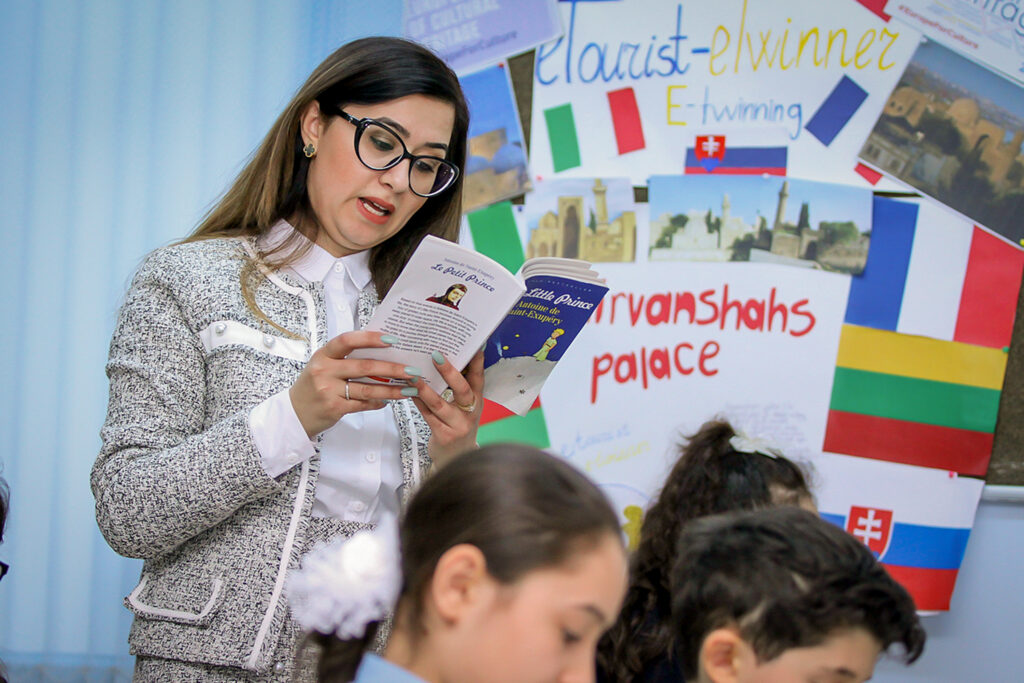 Learning by playing: how the EU supports early development of children in the villages of Azerbaijan
Learning by playing: how the EU supports early development of children in the villages of Azerbaijan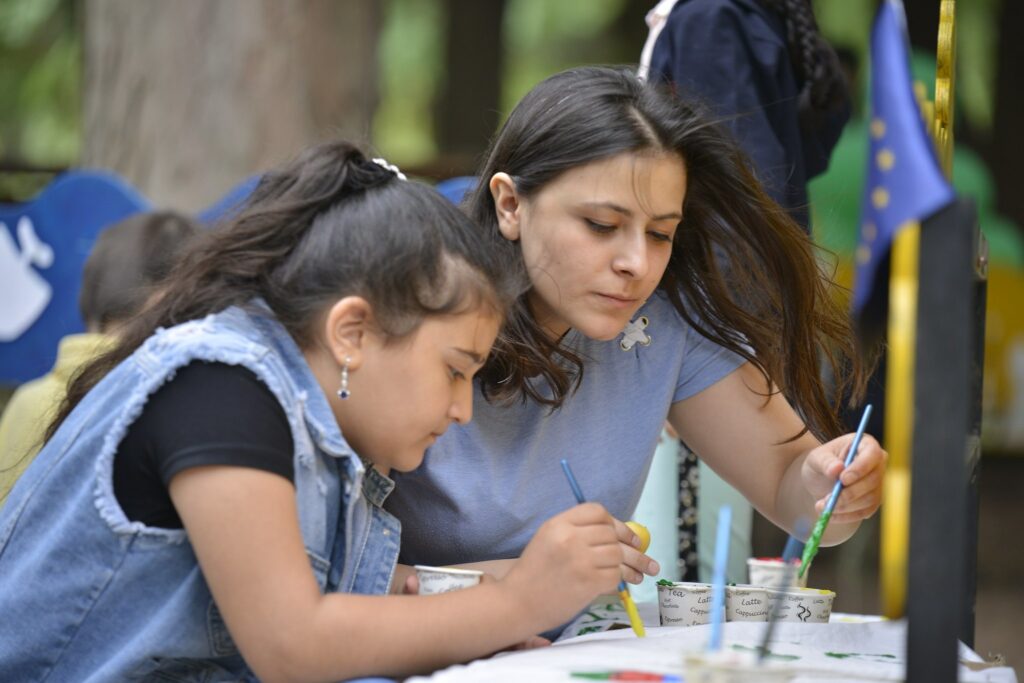 Learning by playing: how the EU supports early development of children in the villages of Azerbaijan
Learning by playing: how the EU supports early development of children in the villages of Azerbaijan
Designed for the period from 2018 to 2021, the project covers 50 local communities in ten districts of the country, which in total amounts to about 1,000 families. The goal of the project is to provide an opportunity for alternative development of preschool children in the most remote settlements where there is no kindergarten, or it is too small.
The centres operate in local schools: one fully furnished classroom is allocated for pre-school education to work with preschool children.
Classes are held four times a week for 2.5 hours. Classes for one group consisting of 20 students are held daily in 37 centres, two groups per day are taught in 13 centres with the help of an additional teacher. The programme for working with children was prepared in cooperation with project partners from Estonia.
According to Ilaha Rasulova, the project coordinator from the Education Institute at the Ministry of Education of Azerbaijan, great attention is paid to working with parents: over the two years of the project’s activities, educational work was carried out with more than 700 mothers.
“We are trying to explain to parents that mother and father are role models for a child: based on how they behave, they will see the same behaviour in their child,” she says.
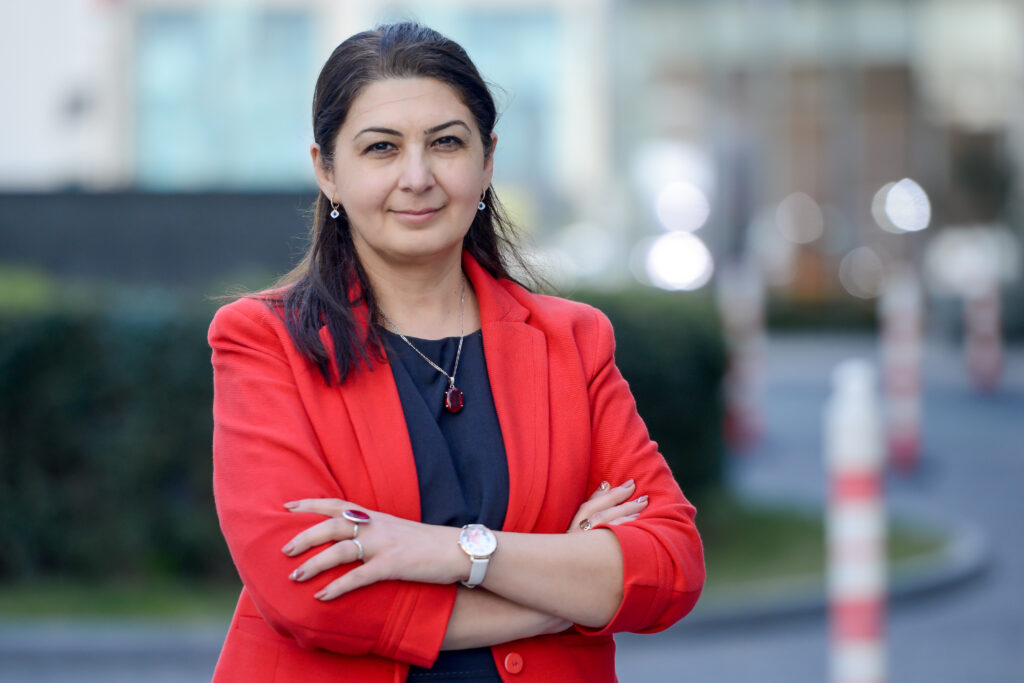 Ilaha Rasulova, project coordinator from the Education Institute at the Ministry of Education of Azerbaijan
Ilaha Rasulova, project coordinator from the Education Institute at the Ministry of Education of Azerbaijan
Thanks to the preschool education centre, the 30-year-old Subnaz Agazade from the village of Khyl, Massalli District, took a fresh look at the education of her 4-year-old daughter, and today she spends more time with her, paying attention to her development.
“Most of my life I spent within the walls of my own house. There is always enough housework and chores in the village. There was no time left for my daughter, and before I only saw that my parental duty was to make sure that the child was fed, dressed and had shoes. I was sure that she would acquire all the necessary knowledge at school,” says Subnaz.
“However, the opening of a Preschool Training Centre in our district has significantly changed not only the life of my child, but mine as well. Now I regularly leave the house, take my daughter to classes, and I also participate in the work of the parent committee. I have a circle of friends among other mothers from our village, and, most importantly, I realised the importance of working with a child from a very young age,” says the young woman.
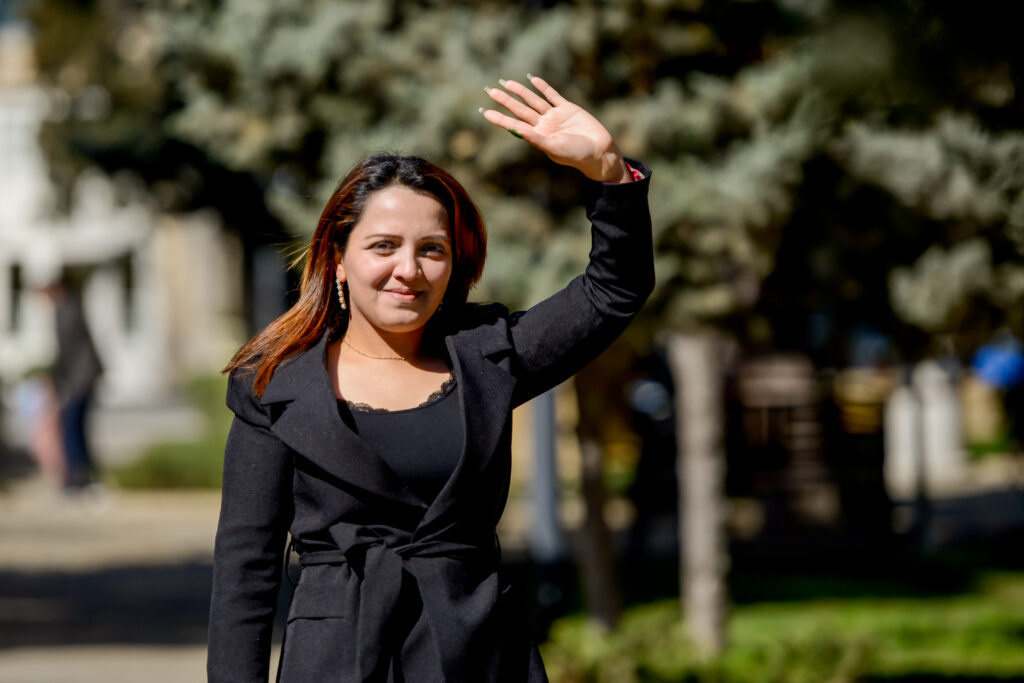 Subnaz Agazade, mother of 4-yers old girl from the village of Khyl, Massalli District of Azerbaijan
Subnaz Agazade, mother of 4-yers old girl from the village of Khyl, Massalli District of Azerbaijan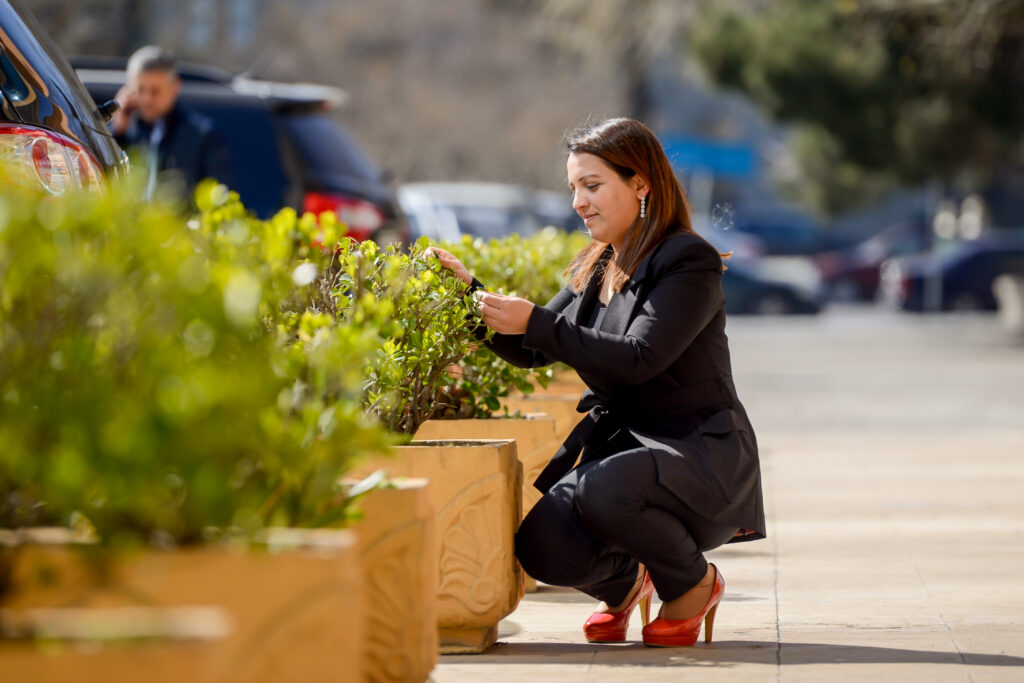 Subnaz Agazade
Subnaz Agazade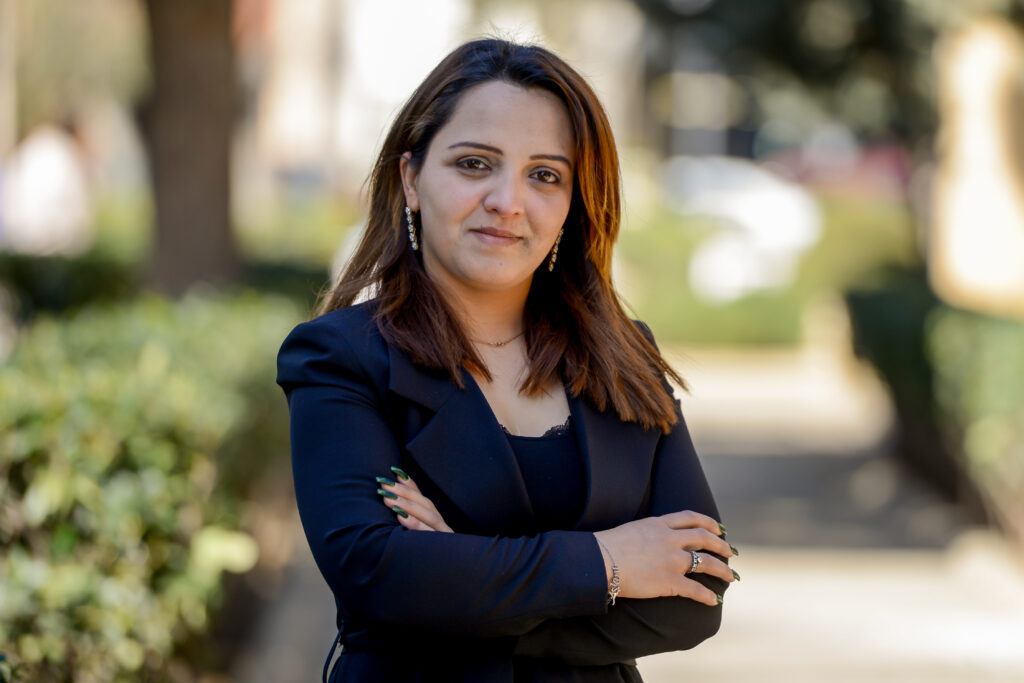 Subnaz Agazade
Subnaz Agazade
According to the centre’s teachers’ recommendations, she now reads fairy tales with her daughter, learns songs and poems, answers her questions and tries to explain the essence of things around her. According to the mother, the girl became much calmer, more attentive, and looks forward to the next lesson at the Centre.
It should be mentioned that 70% of children in preschool centres have problems with speech, says Ilakha Rasulova. The reason, as a rule, is not of a psychological nature, but because there is little contact at home with children, they do not answer their multiple questions, and do not ask questions themselves.
“In most cases, parents do not pay proper attention to communication with the child, as they do not realise the importance of this process. This can be done even when there are many household chores,” the expert believes.
“For example, giving the child simple instructions: ‘bring grandfather a newspaper, give two bones to the dog and find two onions for mother in the kitchen’. This will help the child develop associative thinking, navigate in numbers,” she says.
Teachers for the centres of pre-school education are recruited from among local primary school teachers who first passed the competitive selection and then in-depth trainings on the essence of working with preschool children.
An elementary school teacher Gunay Huseynova from the same village of Khyl in the Massali District says that she is very glad that she got into the project, because after ten years of working with children, she saw the profession from a new angle.
“During the 2.5 hours of our classes, we draw with children, read fairy tales and poems, listen to music, sing and dance, do crafts. I tell them about things surrounding them: about nature, animals, birds, seasons, the simplest things. All this is done in the format of a game,” says Gunay Huseynova.
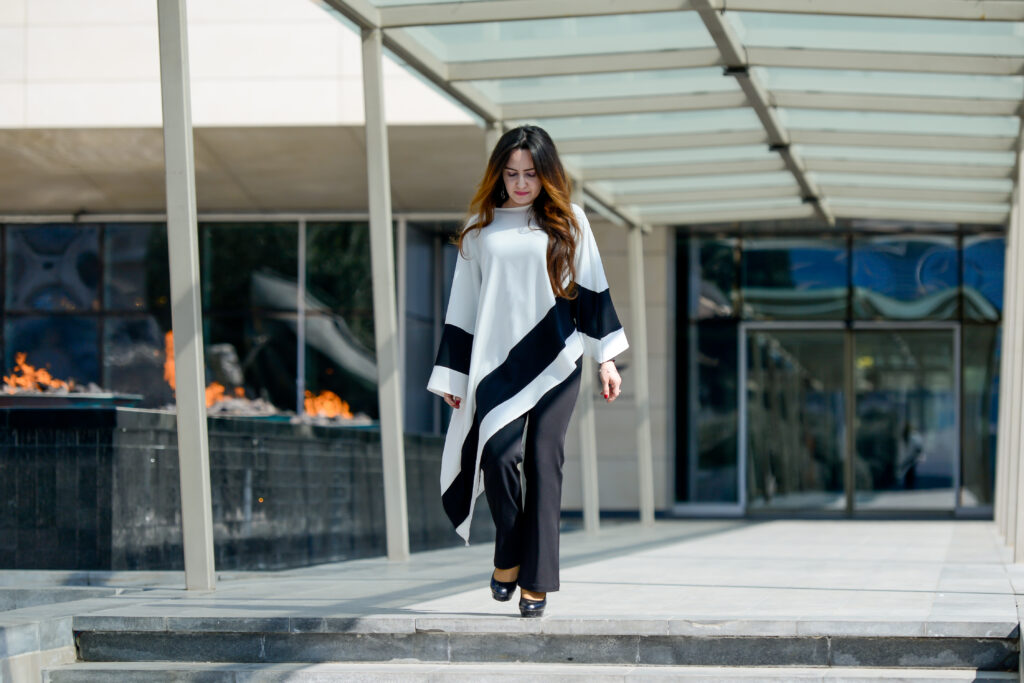 Gunay Huseynova, elementary school teacher,village of Khyl in the Massali District, Azerbaijan
Gunay Huseynova, elementary school teacher,village of Khyl in the Massali District, Azerbaijan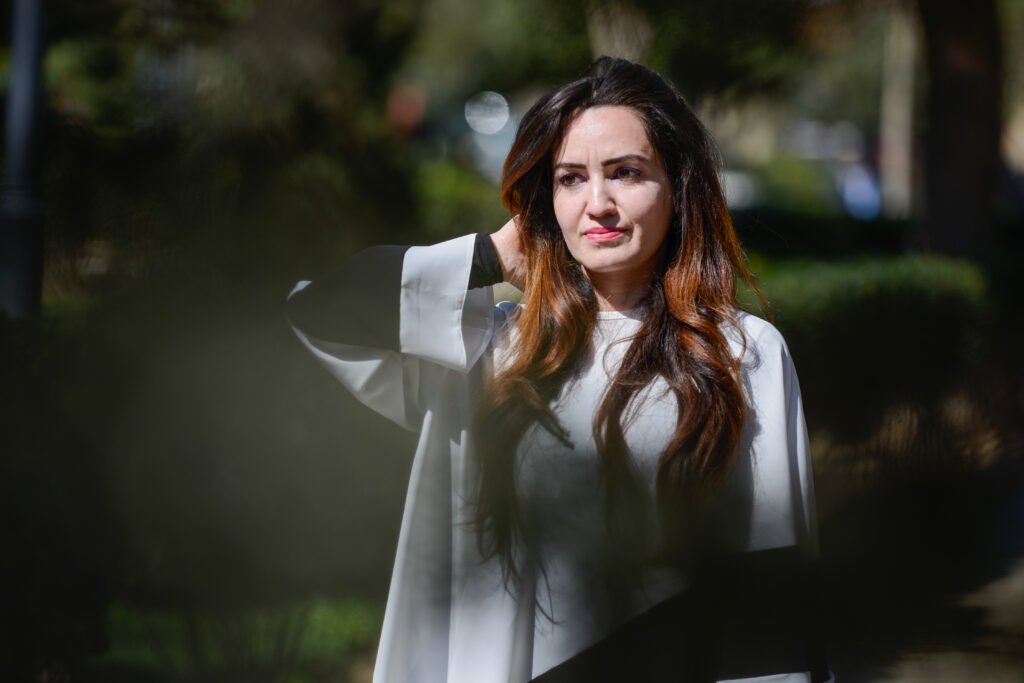 Gunay Huseynova
Gunay Huseynova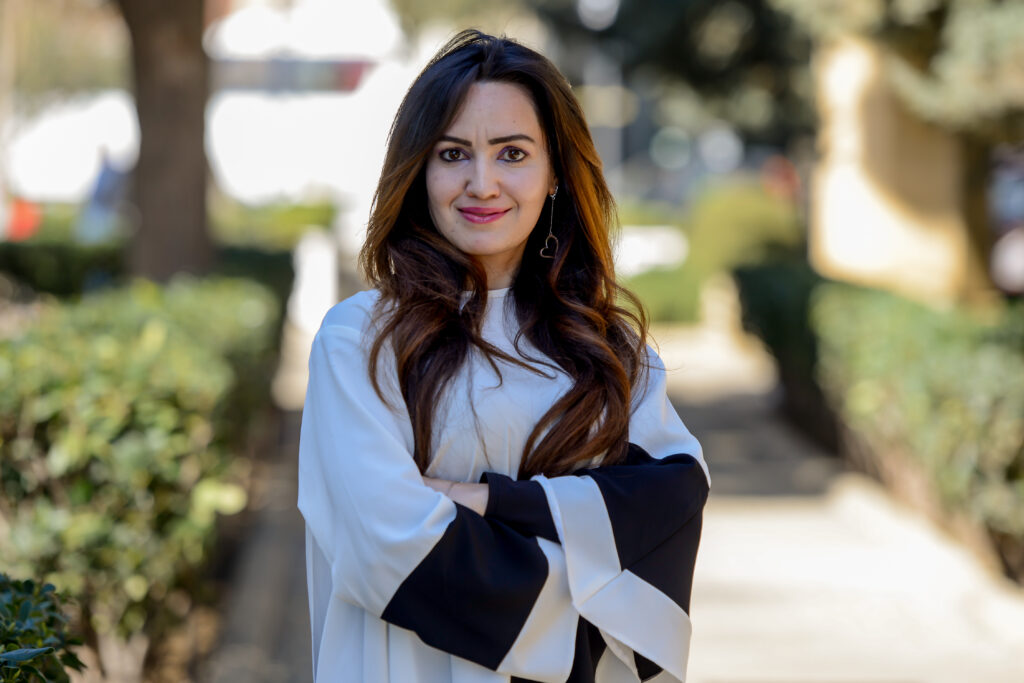 Gunay Huseynova
Gunay Huseynova
According to her, the main principle that teachers adhere to when working with young children is a relaxed atmosphere in the classroom. For example, if one of the children is tired, they can lie down, or if at the moment someone wants to draw more than play some game, educators do not interfere with this.
“Our main goal is to create effective leisure for the children so that their activities during the lesson are useful for their overall development. We pay great attention to the development of fine motor skills of hands by working with playdough and other materials, as well as the development of communication skills in children,” says Gunay Huseynova.
The project also contributes to the development and socialisation of rural women: one of the main requirements for participation was that it was the mothers who brought the children to the Centre and not the grandparents, as is usually the case in villages.
“The project made women look at life outside the walls of their own home. Our mothers have become socially active, trying to keep abreast of the main significant news in the area, and actively participate in the work of parent committees. Many got so involved in the work that now they have the desire to work with the children themselves, and they really help the teacher during the lessons,” says Gunay Huseynova.
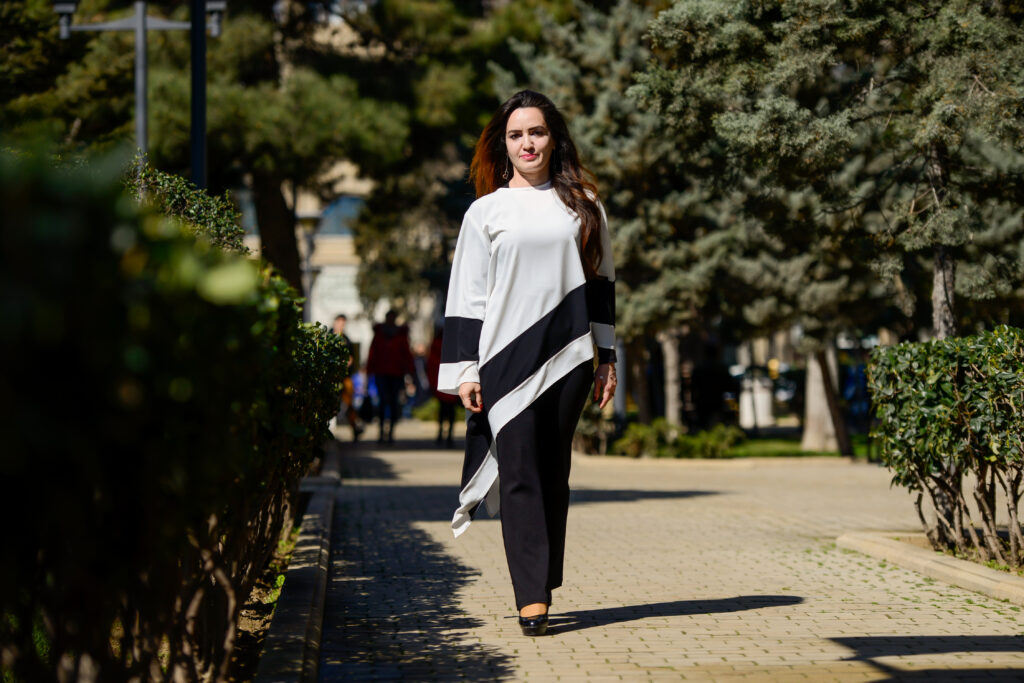 Gunay Huseynova
Gunay Huseynova
According to Ilakha Rasulova, the preference of pre-school centres for full-format state kindergartens also lies in the economy of such a model for the state budget, since the opening of a full-format kindergarten in every small village involves the cost of building the building itself, its equipment, providing three meals a day for children, the salaries of educators and other incidental expenses.
Given the good results of the pilot project, the Ministry of Education of Azerbaijan decided to expand the geographical coverage by the centres of preschool education, and soon it is planned to open another 260 centres in 34 districts of the country.
Author: Elena Ostapenko
Article published in Azerbaijani and Russian by 1news.az.
MOST READ
SEE ALSO

No, time is not on Russia‘s side
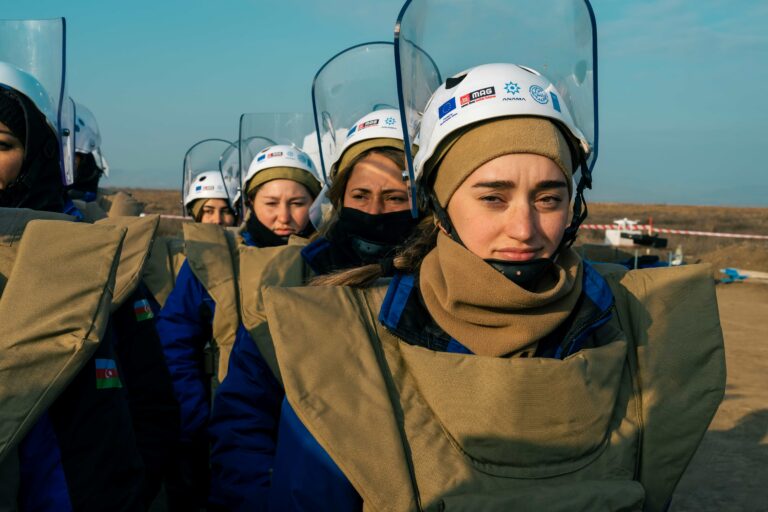
I have no regrets: the Azerbaijani women trained to clear mines
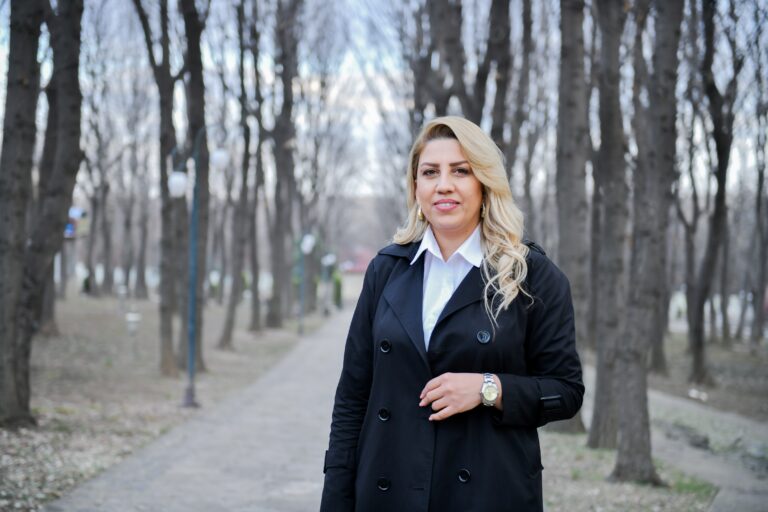
Turning a hobby into business: how Vusala Akhmadova from Tovuz helps women and children develop

Be one step ahead of a hacker: check simple cybersecurity tips!
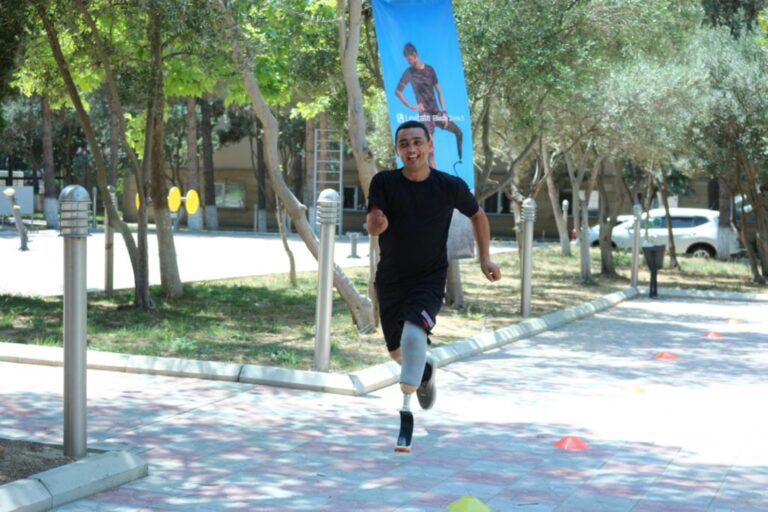
A chance for a better life: restoring justice for people with disabilities in Azerbaijan
More campaign pages:
Interested in the latest news and opportunities?
This website is managed by the EU-funded Regional Communication Programme for the Eastern Neighbourhood ('EU NEIGHBOURS east’), which complements and supports the communication of the Delegations of the European Union in the Eastern partner countries, and works under the guidance of the European Commission’s Directorate-General for Neighbourhood Policy and Enlargement Negotiations, and the European External Action Service. EU NEIGHBOURS east is implemented by a GOPA PACE-led consortium. It is part of the larger Neighbourhood Communication Programme (2020-2024) for the EU's Eastern and Southern Neighbourhood, which also includes 'EU NEIGHBOURS south’ project that runs the EU Neighbours portal.

The information on this site is subject to a Disclaimer and Protection of personal data. © European Union,







